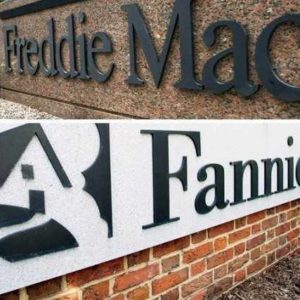Last week, Fannie Mae and Freddie Mac made an announcement that has rocked the industry: For loans purchased on or after September 1, the two GSEs (government-sponsored enterprises) will assess a new “adverse market” fee of one half of one percent on refinance loans.
Trade associations like the Community Home Lenders Association (CHLA), of which my firm is a member, immediately responded by calling on Fannie and Freddie to withdraw this new fee. Why? Because this is simply the wrong time to make it harder for consumers to strengthen their finances by taking advantage of historically low mortgage rates.
Fannie and Freddie continue to be out of step in terms of helping the tens of millions of American families struggling with the health and economic fallout from COVID-19. For example, they recently announced a hefty 7 percent penalty on properly underwritten loans that subsequently go into forbearance prior to GSE purchase.
Fees and penalties are the wrong strategy at this time.
The coronavirus has wreaked havoc on both the economy at large and the finances of individual families.
Congress has already approved $3 trillion to help cushion economic effects in response to the virus. The Federal Reserve is pumping massive amounts of money into the economy and even guaranteeing some corporate debt. Small businesses have received hundreds of billions of dollars in assistance to help them meet payroll and pay rent.
So, it is puzzling that Fannie and Freddie would choose this same time to make it more expensive for borrowers to stabilize their personal finances by raising the cost of refinancing — in effect imposing a new homeownership tax.
The premise appears to be that these loans present more risk due to the pandemic. No doubt, this is true. But that in itself does not justify a fee hike at this time.
First, Fannie and Freddie are not wholly private entities with a singular goal of maximizing profits. They are quasi-government entities with a congressional charter that includes a mandate to provide public access to mortgage credit, and they are currently in conservatorship under the Federal Housing Finance Agency (FHFA).
Secondly, after paying back the advance the federal government provided to keep them afloat in 2008 through the Senior Preferred Stock Purchase Agreements (SPSPAs), Fannie and Freddie have contributed more than $100 billion net to taxpayers through the profit sweep under the SPSPAs.
If these funds had not been swept, they would have been available as reserves and could have been used precisely to avoid these types of actions which seem to put the bottom line ahead of the financial condition of homeowners.
Third, the additional revenues this new homeownership fee will likely bring in is relatively small in the GSEs’ overall financial picture — neither significant nor essential to the GSEs’ bottom line — but they will have a disproportionately negative impact on borrowers.
Congress is locked into a contentious negotiation about how much in additional funds to provide to help consumers survive the negative impact of COVID-19. It is baffling why the GSEs would want to discourage a source of financial assistance that does not come with a taxpayer price tag — but merely taps into borrowers’ home equity and/or improves their cash flow.
Finally, the short effective date — less than three weeks — unfairly places a burden on lenders and borrowers that are in the middle of processing loans. Lenders that offered borrowers mortgage loan locks will find that they are unfairly stuck with the tab for this sudden fee hike — or depending on how the loan plays out, borrowers could get stuck with the cost.
The financial health of Fannie and Freddie are important. But that does justify this new tax on refinance loans for consumers at this precarious time.
The GSEs should simply withdraw it.

